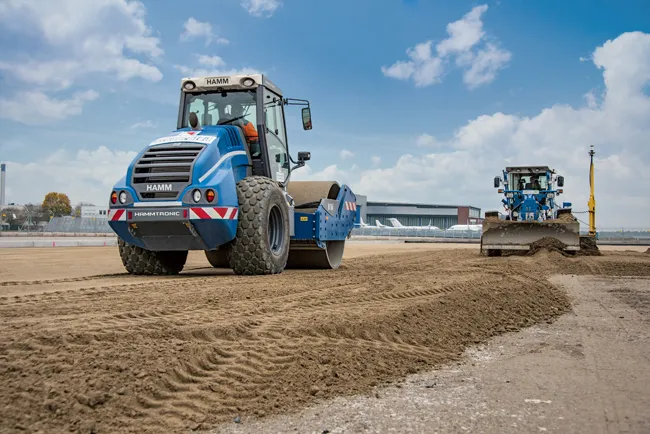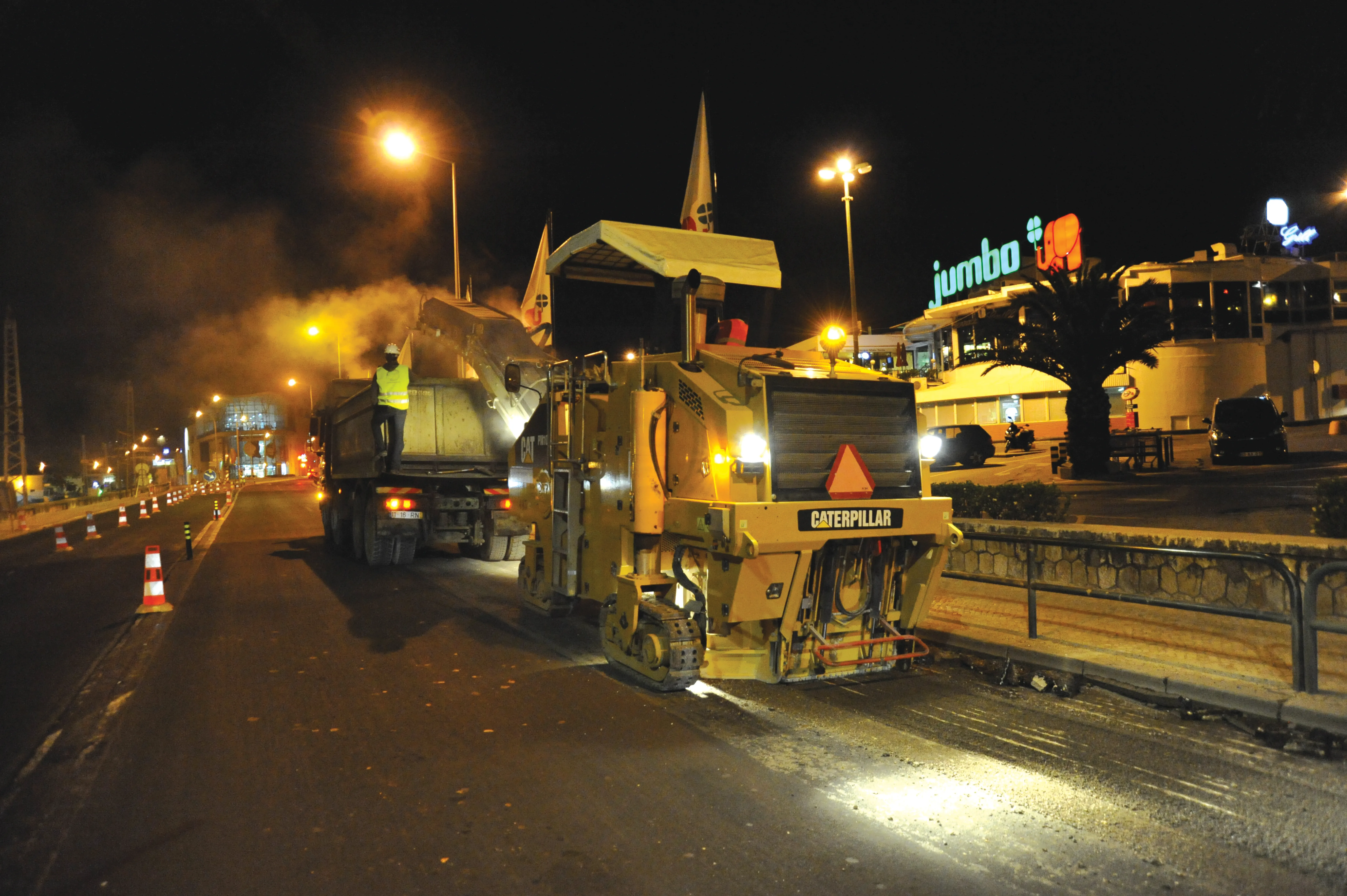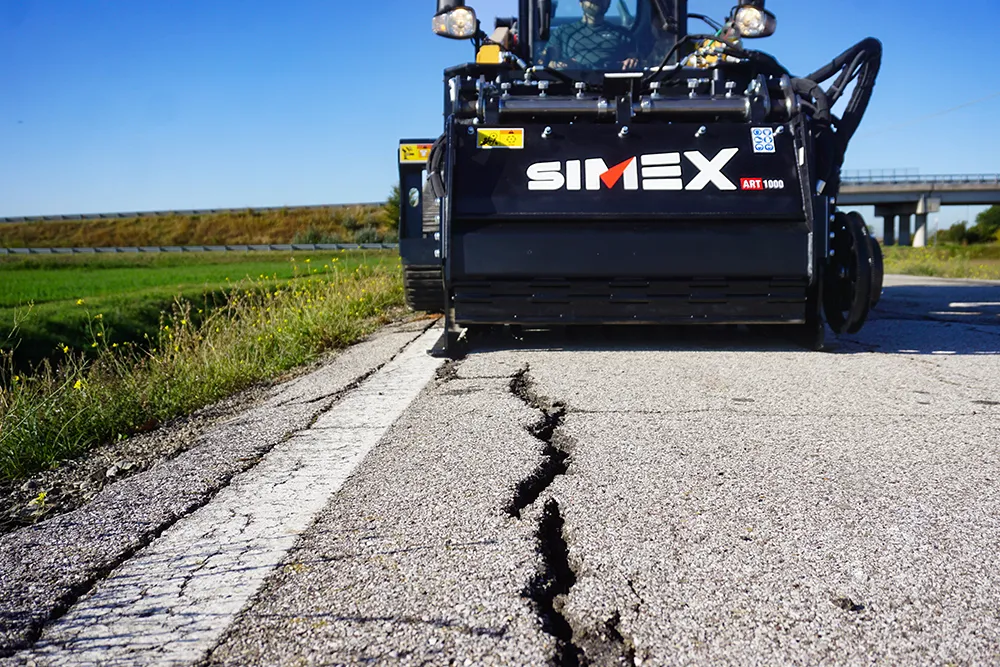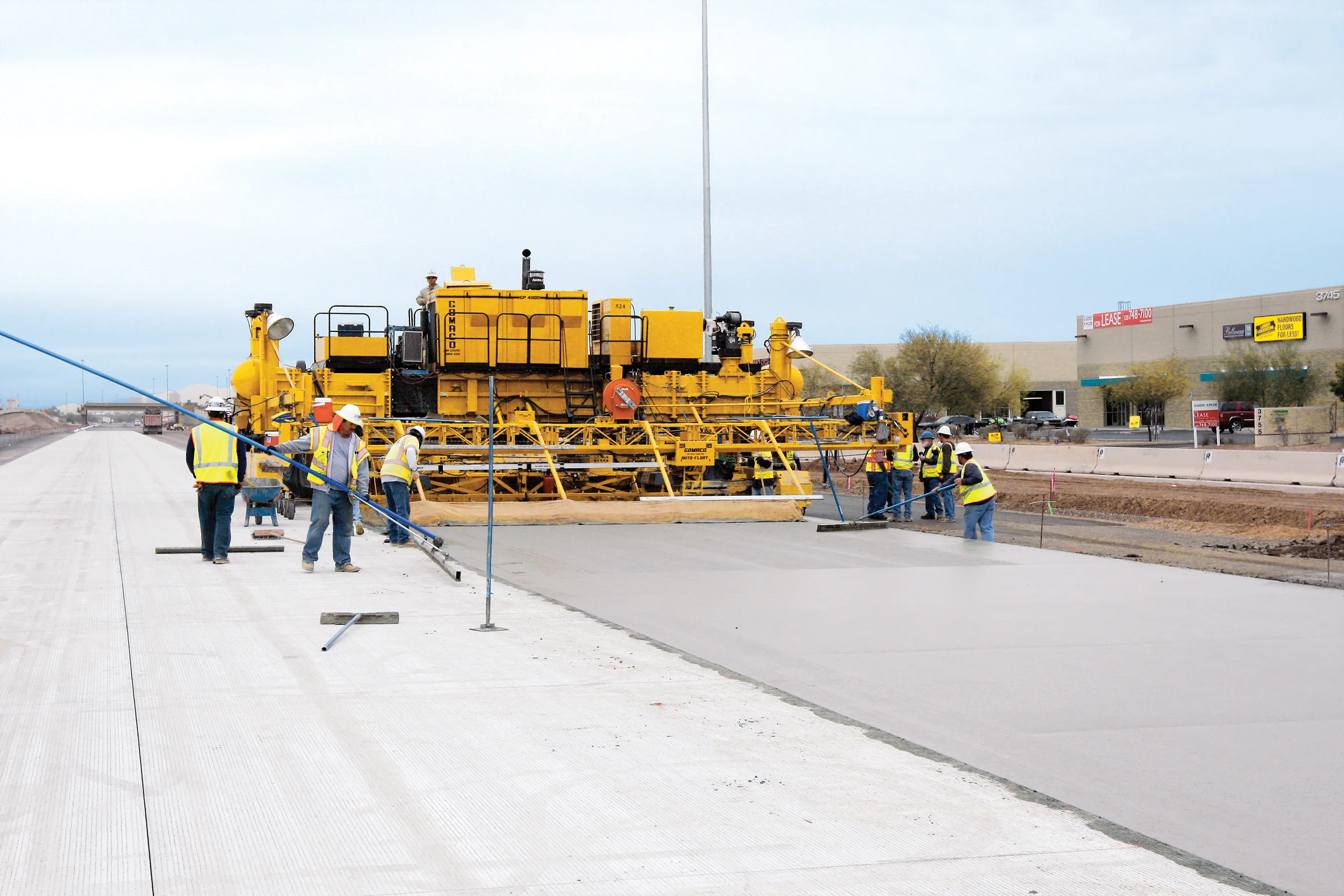A special customised cold planer has saved costs and time for a US contractor. In the US, New York State Highway 243 has benefited from an innovative use of novel milling technology. This 17.75km east–west state highway is located in the Southern Tier of New York and has been carrying traffic since the 1930 renumbering of state highways in the state. The NY 243 has been a utilitarian divided highway that begins at an intersection with NY 98 in the town of Freedom and proceeds south-eastward across mostly ru
October 14, 2015
Read time: 4 mins
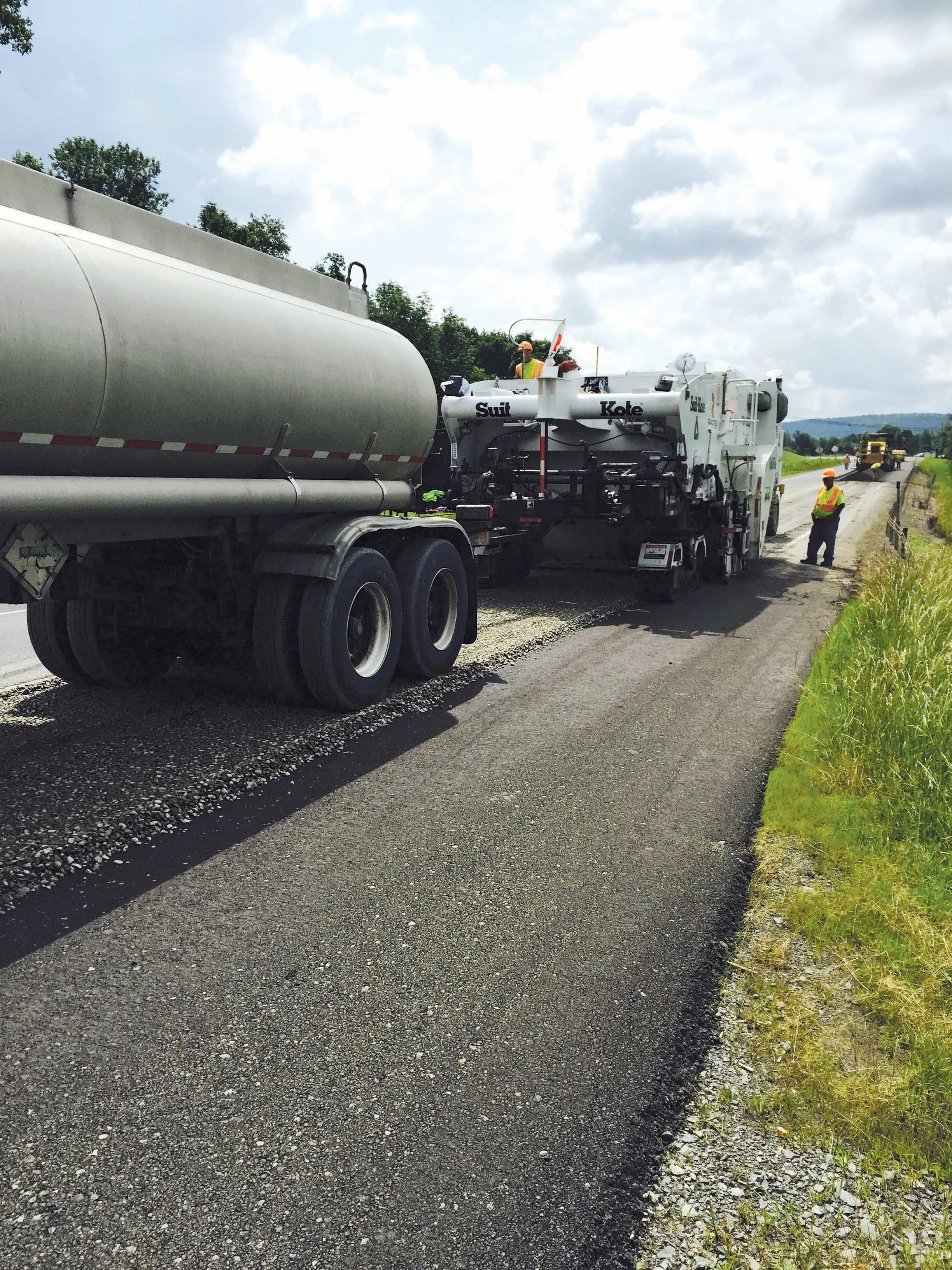
A special customised cold planer has saved costs and time for a US contractor
In the US, New York State Highway 243 has benefited from an innovative use of novel milling technology. This 17.75km east–west state highway is located in the Southern Tier of New York and has been carrying traffic since the 1930 renumbering of state highways in the state.
The NY 243 has been a utilitarian divided highway that begins at an intersection with NY 98 in the town of Freedom and proceeds south-eastward across mostly rural areas of Cattaraugus and Allegany counties to Rushford Lake and then eastward into the town of Caneadea, where it ends at a junction with NY 19.
In 2014, the New York Department of Transportation put out for bid the rehab of 10.6km of NY 243. The road surface had aged and was displaying both transverse and longitudinal cracking.
3955 Suit-Kote Corporation, headquartered in Cortland, New York, won the cold-in-place-recycle (binder coarse) portion with a US$850,000 contract value. "The contractor opted to use a modified 1252 Roadtec RX-900e milling machine to do single unit cold-in-place recycling (CIPR) for this job," states Zeke Quinlan, vice president of operations for Suit-Kote Corporation.
The firm opted for this solution as it has used CIPR with high float emulsion on a number of jobs and says the method helps with coatings and improves wintertime freeze/thaw performance by providing a mat with greater flexibility.
A 457mm wider frame provides better stability, balanced performance, and greater productivity. The completely fabricated, welded and assembled machine frame is constructed from A656 Grade 80 steel, a grade of steel with twice the strength of the mild steel that is commonly used.
The modified machine does not have a conveyor so the aggregate millings, with a chemically-stabilised emulsion binder, are discharged directly to the roadway in a windrow to be collected by the paver. This is equipped with a windrow pickup system for the task. The paver picks the material up off the ground and sends it through to be paved as the CIPR base layer.
With input from Suit-Kote, Roadtec performed much of the cold planer modifications to deliver the custom single unit CIPR machine.
An3773 Ingersoll Rand ABG Titan 525 paver from 7659 Volvo Construction Equipment followed the cold planer and placed the 114.3mm CIPR base course. Another contractor will complete the roadway with a 50.8mm hot-mix asphalt thin lay finish course. The recycled material is left in a windrow directly behind the mill. A paver equipped with the windrow pickup unit picks the material up off the ground and sends it through the paver. Once the CIPR base layer is paved, an additional new layer of hot-mix asphalt is used to finish the process.
The NY 243 road surface is a single-lane divided rural highway measuring 6.7m across with 1.22m shoulders on each side. With a milling depth of 114.3mm, a total of 143,000 square yards was milled and all of it was recycled.
For this New York State Highway project, Suit-Kote has 12 of its workers dedicated. The contractor will complete the project in 11 days with an additional 10-day cure. The entire roadway upgrade project is expected to be completed in approximately five to six weeks.
The contractor claims that its novel method and purpose-designed RX-900e has saved time and money on the NY 243. According to the company, this approach is more practical than a complete mill-and-fill job while the company is also recycling 100% of the milled old roadway and ensuring non-stop paving.
The contractor expects that the CIPR will save approximately 50% of materials cost, as well as considerable cost savings for both the trucking of road millings out and HMA brought in, if traditional road rehab methods had been used.
In the US, New York State Highway 243 has benefited from an innovative use of novel milling technology. This 17.75km east–west state highway is located in the Southern Tier of New York and has been carrying traffic since the 1930 renumbering of state highways in the state.
The NY 243 has been a utilitarian divided highway that begins at an intersection with NY 98 in the town of Freedom and proceeds south-eastward across mostly rural areas of Cattaraugus and Allegany counties to Rushford Lake and then eastward into the town of Caneadea, where it ends at a junction with NY 19.
In 2014, the New York Department of Transportation put out for bid the rehab of 10.6km of NY 243. The road surface had aged and was displaying both transverse and longitudinal cracking.
The firm opted for this solution as it has used CIPR with high float emulsion on a number of jobs and says the method helps with coatings and improves wintertime freeze/thaw performance by providing a mat with greater flexibility.
A 457mm wider frame provides better stability, balanced performance, and greater productivity. The completely fabricated, welded and assembled machine frame is constructed from A656 Grade 80 steel, a grade of steel with twice the strength of the mild steel that is commonly used.
The modified machine does not have a conveyor so the aggregate millings, with a chemically-stabilised emulsion binder, are discharged directly to the roadway in a windrow to be collected by the paver. This is equipped with a windrow pickup system for the task. The paver picks the material up off the ground and sends it through to be paved as the CIPR base layer.
With input from Suit-Kote, Roadtec performed much of the cold planer modifications to deliver the custom single unit CIPR machine.
An
The NY 243 road surface is a single-lane divided rural highway measuring 6.7m across with 1.22m shoulders on each side. With a milling depth of 114.3mm, a total of 143,000 square yards was milled and all of it was recycled.
For this New York State Highway project, Suit-Kote has 12 of its workers dedicated. The contractor will complete the project in 11 days with an additional 10-day cure. The entire roadway upgrade project is expected to be completed in approximately five to six weeks.
The contractor claims that its novel method and purpose-designed RX-900e has saved time and money on the NY 243. According to the company, this approach is more practical than a complete mill-and-fill job while the company is also recycling 100% of the milled old roadway and ensuring non-stop paving.
The contractor expects that the CIPR will save approximately 50% of materials cost, as well as considerable cost savings for both the trucking of road millings out and HMA brought in, if traditional road rehab methods had been used.


